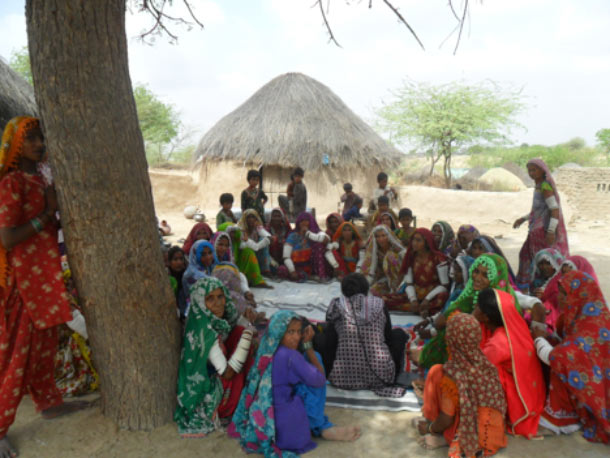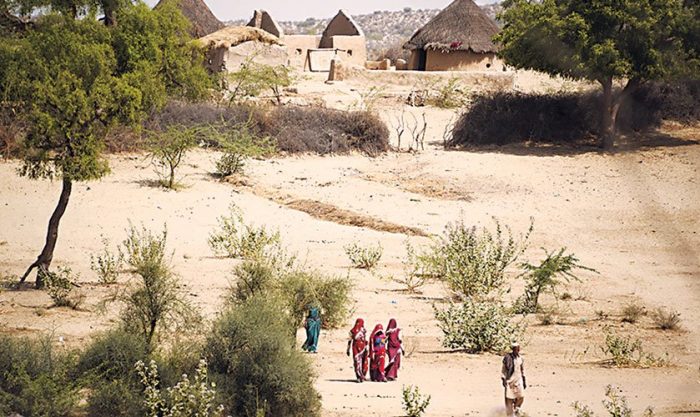
It is time to shift the narrative from a deficit-based perspective to one that celebrates the inherent strengths and resilience within communities
Zaheer Udin Babar Junejo
Human beings are inherently designed to support one another, whether intentionally or unwittingly contributing to each other’s lives. In today’s world, the act of helping often begins with recognizing a need for correction. Helping is a noble and powerful human impulse, but in the current market-driven environment, it has a shadow side too. For over 23 years of working with communities, I realized some forms of assistance create dependence, and there’s a recognition that changing people externally is perceived as violence, whereas self-initiated change is experienced as liberation. To truly help people without undermining their capacities, the focus must shift from identifying weaknesses to uncovering strengths within individuals and their communities. Building relationships and fostering community are emphasized over individualism and financial considerations. Existing models suggest that starting with community strengths and abilities yields more positive outcomes.
Unfortunately, contemporary programs often concentrate on what is wrong, broken, or pathological within communities, contributing to worsening conditions over time. Often those responsible for service provision benefit more than the recipients, which might be one of the reasons leading to a decline in active citizenship. External support becomes a predominant solution in the face of these challenges. It is argued that the time has come to shift from a model of fixing what is wrong to embracing what is strong. CSOs are often perceived as filling the gaps left by government inadequacies, serving as catalysts rather than substitutes. It’s essential to acknowledge that these organizations shouldn’t solely operate based on emotions but also consider individuals’ passions and motivations. What sparks a fire in their eyes? This is a call for more than recipients; it’s a call for genuine partnerships. The shift towards a model that recognizes and builds upon strengths requires a reevaluation of how assistance is conceptualized. Rather than imposing external solutions, there’s a growing awareness that sustainable change emerges from within communities. Shared narratives, communal skills, the power of social networks, and the wealth of local resources—both natural and human—form the bedrock of this approach.

In the current landscape, where programs often focus on deficiencies, it’s imperative to break free from this cycle. Over two decades of working with the same community may not yield positive results if the approach remains rooted in what is wrong and broken. The risk of creating dependency and eroding active citizenship is real, leading to a loss of neighborhood wisdom in favor of so-called professionalism and technology. The cry for a paradigm shift is not just about replacing what’s wrong with what’s strong but also redefining the very nature of assistance. This transformation involves turning traditional notions of help inside out, emphasizing collaborative efforts that honor the autonomy and capabilities of individuals and communities.
As we navigate these changes, it becomes evident that external support is not the sole answer. Instead, a genuine understanding of community strengths and a commitment to partnership can lead to more sustainable and empowering outcomes. This is a call to action for a more holistic approach—one that fosters collaboration, values local wisdom, and appreciates the richness of diverse communities. In a world where active citizenship seems to be dwindling, and the focus often leans towards survival rather than thriving, the need for a collective reimagining of assistance models becomes ever more pressing. It is time to shift the narrative from a deficit-based perspective to one that celebrates the inherent strengths and resilience within communities, fostering a true sense of partnership and shared responsibility for a better future.
_______________
 Zaheer Udin Babar Junejo, based in Hyderabad, is a specialist in Institutional Development, MEAL (Monitoring, Evaluation, Accountability, and Learning), and Fundraising. linkedin.com/in/zaheer-udin-babar-junejo-0a30a9152
Zaheer Udin Babar Junejo, based in Hyderabad, is a specialist in Institutional Development, MEAL (Monitoring, Evaluation, Accountability, and Learning), and Fundraising. linkedin.com/in/zaheer-udin-babar-junejo-0a30a9152
[…] Read: Shifting from Fixing to Flourishing […]